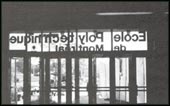This work also encourages women students to establish connections between their own personal experiences of violence and those of other women, breaking the isolation they have often felt. Some women choose the centre as a place to help them come to terms with long histories of violence - not as the solution to their problems, but as a place where they can gain some of the strength necessary to heal and lead a less disrupted life. We strongly believe that women must have a place where they can also be free to articulate and share their feelings about violence against women, their ideas and . interpretations, as well as create their own I strategies and solutions. Unfortunately even women's studies courses are not a guaranteed forum in which to explore without inhibitions. While we are aware of our limitations in terms of the role we can play as facilitator, we try to ensure the conditions and resources necessary for such discussion. In dealing with issues of violence, therefore, we see our role as two-fold. On the one had we are reactive: responding directly to a woman's immediate needs in a given situation, and also through self-generated statements and actions, and through commentaries to the media (both campus and mainstream) in response to incidences and manifestations of violence. The other part of our stance can be described as pro-active or preventative and consists of a number of strategies that could be grouped under the following headings: education, expression and communication, action, analysis and advocacy. Our educational work includes the publication of information material, organizing events such as the Sexual Assault Awareness Week and Take Back the Night, and maintenance of a print resource centre. Expression and communication also have an educational component, but focus more on activities that give women an opportunity to express their experiences and feeling through art exhibits, performances, or through writing. Action includes demonstrations and other public events, as well as the organization of self-defense courses on a regular basis - strategies that aim at empowering women and at freeing them of the paralysis they often feel. Analysis describes the efforts we under- take to remain informed and critical, through our analysis of the media, of reports submitted to the university, and of incidences of violence on and off campus. Finally, by taking a position on issues, and by participating on key university committees, we exercise a role as advocates working for change. All women on campus are invited to participate and contribute to these various strategies, and, in turn, devise and develop new ones, adapted to the new situations we constantly face. The task of eliminating violence against women in this society, and ultimately all violence, is one which, in these increasingly conservative times, needs all the courage that women can muster: the courage to deal with violence in our lives; the courage to keep breaking the silence and naming the violence to which we are subjected in classrooms, at home and on the streets; the courage to keep confronting the elements that perpetuate the violence as well as the individuals that resist the naming. Ultimately, a women's centre such as the Concordia Women's Centre is a place for women to gather and measure their courage and, with the help of others, to use it, test it, foster it and make it grow. Margot Lacroix is a member of the collective of the Concordia Women's Centre. |
| Back | Contents | Next |
